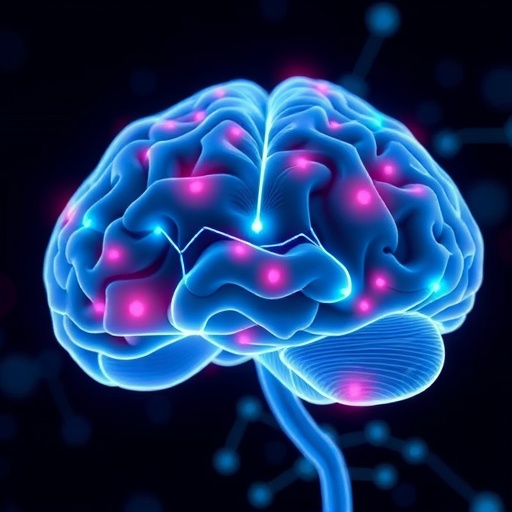Alcohol Use Disorder (AUD) commands an urgent spotlight in biomedical research due to its devastating impact on millions globally, particularly in the United States where an estimated 14.1 million individuals grapple with this chronic condition. Characterized by compulsive alcohol consumption and dependency marked by both physiological and psychological elements, AUD inflicts significant societal burdens, including an annual economic cost approximated at $249 billion. Despite these staggering figures, the therapeutic landscape has stagnated with minimal pharmacological advancements since 2004, illustrating a critical need for innovative approaches and fresh biological insights.
In a groundbreaking effort to bridge this therapeutic gap, Dr. Dawei Li, a prominent researcher at Texas Tech University Health Sciences Center (TTUHSC), has embarked on an ambitious pilot study funded by a two-year grant of $407,468 from the National Institute on Alcohol Abuse and Alcoholism (NIAAA). His research aims to delve deep into the neurobiological mysteries underlying AUD, with a pioneering focus on the enigmatic involvement of endogenous retroviruses (ERVs) in neuroinflammation triggered by excessive alcohol consumption.
Existing scientific literature has firmly established elevated interferon signaling and activated inflammatory cascades as hallmarks within the neural milieu of both human subjects diagnosed with AUD and animal models exhibiting alcohol-preferring behaviors. Yet, the molecular drivers that could modulate or reverse these neuroimmune derangements remain poorly understood. Dr. Li’s investigation posits an innovative hypothesis: that ERVs, typically dormant genetic elements embedded within human DNA, may play a decisive role in fueling the neuroinflammatory processes observed in AUD.
ERVs represent roughly eight percent of the human genome and originate from remnants of ancient retroviral infections that became permanently integrated into our genetic material throughout evolutionary history. Though generally epigenetically silenced, certain environmental factors—such as chronic and excessive alcohol exposure—could reactivate these viral sequences. Reactivation may provoke host immune systems to perceive these ERVs as foreign pathogens, thereby initiating inflammatory immune responses that exacerbate neural dysfunction.
This neurological inflammation is a recognized contributor to the behavioral and cognitive impairments associated with AUD, yet targeting the molecular basis of inflammation for therapeutic intervention has proven elusive. Dr. Li’s approach employs a novel bioinformatics platform designed to accurately genotype and quantify ERV expression at a genome-wide scale, allowing for precise characterization of individual ERV elements and their activity status within AUD-affected brains.
Utilizing RNA and genome sequencing datasets gathered from individuals diagnosed with AUD, the study seeks to accomplish two primary objectives. First, to identify ERV transcripts that are transcriptionally upregulated in these patients, signaling a possible mechanistic link to neuroinflammation. Second, to discern whether specific ERV genetic variants correlate with susceptibility or severity of AUD, thus offering insight into genetic predisposition factors.
The significance of this exploration extends beyond mere academic interest; it opens the door to tangible therapeutic avenues. By illuminating ERV involvement in AUD pathophysiology, researchers can investigate the potential to repurpose existing FDA-approved antiviral agents, tailored anti-inflammatory medications, or even develop novel compounds targeting ERV-driven inflammatory pathways. Such targeted treatments could revolutionize the management of AUD by interrupting the harmful neuroimmune feedback loops perpetuated by ERV activation.
Moreover, Dr. Li envisions the translation of his findings into advanced diagnostic tools, utilizing molecular signatures of ERV expression and genotype as biomarkers to enable early detection and individualized therapy options for AUD patients. This precision medicine approach could markedly improve treatment outcomes and reduce the social and healthcare burdens posed by this disorder.
Despite the promising nature of these investigations, Dr. Li emphasizes caution and rigor, recognizing that insights from this pilot study necessitate validation through expansive, well-powered cohorts and comprehensive functional studies. Parsing the complexity of ERV dynamics within the human brain and their interaction with environmental triggers such as alcohol remains a formidable scientific challenge demanding multidisciplinary collaboration.
This research initiative situates itself at the frontier of neurovirology, immunology, and psychiatric medicine, underscoring the intricate interplay between viral genetic relics and chronic neuroinflammatory diseases. If successful, it will not only deepen understanding of AUD but also potentially redefine pathways for intervention in other neurodegenerative or psychiatric conditions with inflammatory components.
Ultimately, Dr. Li’s study represents a compelling paradigm shift, shifting the focus towards latent viral elements within the human genome as active participants in disease processes. This novel conceptual framework holds transformative potential to unlock new horizons in the battle against alcohol use disorder, with promising implications for improved patient care and societal health.
Subject of Research: Neurobiological factors in alcohol use disorder; role of endogenous retroviruses in neuroinflammation associated with AUD.
Article Title: Exploring the Role of Endogenous Retroviruses in Neuroinflammation: A Novel Avenue for Alcohol Use Disorder Treatment
News Publication Date: Not specified in source content.
Web References: Not provided.
References: Not provided.
Image Credits: Texas Tech University Health Sciences Center (TTUHSC)
Keywords: Alcohol Use Disorder, Endogenous Retroviruses, Neuroinflammation, Interferon Signaling, Bioinformatics, Genome Sequencing, Neuroimmune Dysregulation, Therapeutic Targets, NIH/NIAAA, Neurobiology, Psychiatric Disorders, Inflammatory Pathways.
Tags: Alcohol Use Disorder researchcompulsive alcohol consumption treatmenteconomic cost of alcohol addictionendogenous retroviruses in alcohol consumptioninnovative approaches for alcohol addiction therapyNational Institute on Alcohol Abuse and Alcoholism fundingneurobiological mechanisms of AUDneuroinflammation and alcohol usepharmacological advancements for AUDpotential targets for AUD treatmentsocietal impact of alcohol use disorderTexas Tech University Health Sciences Center study





